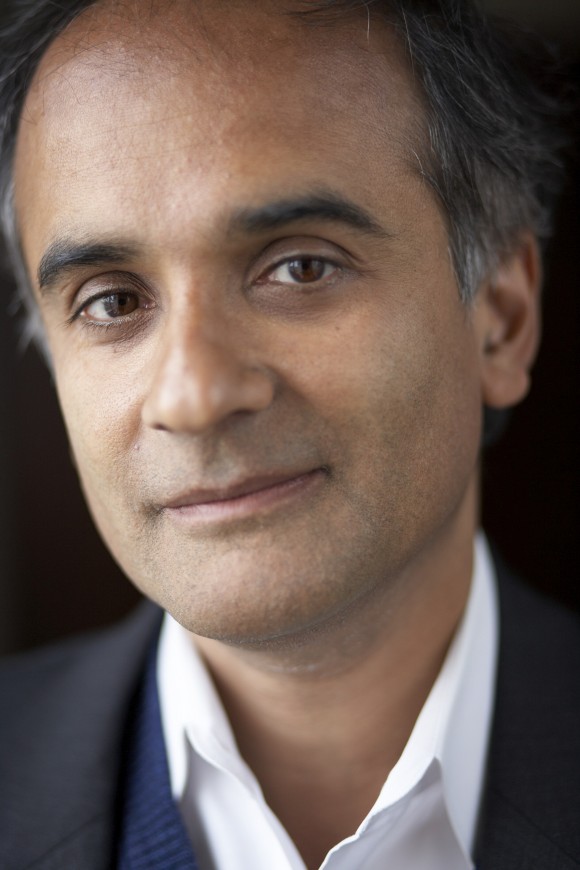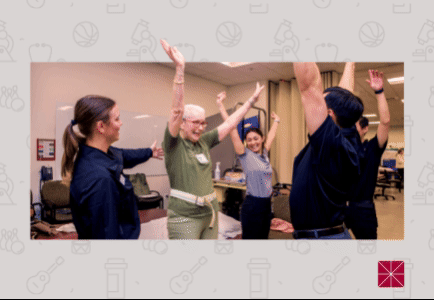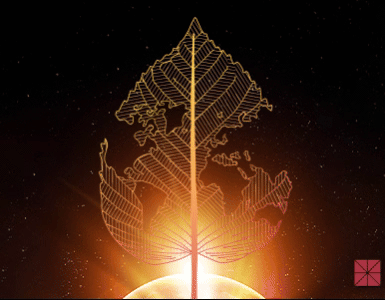I’ve always loved that moment in Graham Greene’s classic novel of Vietnam, The Quiet American, in which the English protagonist, Thomas Fowler, tells a French friend in Saigon that he’s been summoned back to his head office. “Home?” the Frenchman asks. “No,” says Fowler. “England.”

Pico Iyer.
Exactly, I think! An Englishman may think of England as the opposite of home, and yet may feel entirely at home in exotic and seductive Vietnam, with which he has no official connection. A typical American today may have so many places she thinks of as home that the word suggests an anthology of places, a mix of her parents’ homeland, the culture her partner speaks for, the city where she went to school — and the one where she dreams of going.
This summer, I’ll be going back to England, where I was born and spent most of my first 21 years. But I’ll be seeing my hometown of Oxford in part through the eyes of my Japanese wife, and no one has ever thought of me (thanks to my Indian features) as a classic Englishman. Then I’ll be returning to my home in Santa Barbara, where my mother (sari-clad and raised in British India) lives; we’ve been officially based in Santa Barbara for almost 50 years now, but never begin to sound or think like our neighbors. Then I’ll head back to Japan, the country where I truly feel at home, though I’ve been there for 27 years on a tourist visa, and never wear Japanese clothes, barely eat Japanese food and speak Japanese only as a 3-year-old girl might. My real home, I sometimes think, is a place like Chapman University, where so many of the students I meet on campus share the same sensation, of “home” being a sentence they never quite complete.
This is the way the world is going, lightning-fast. There are now 220 million people living in countries not their own; the number is increasing so quickly that soon there’ll be more of us than there are Americans. Many, many of these travelers are, of course, exiles, who never wanted to leave their homes, and ache to go back home. But for the fortunate among us, it makes for a world our grandparents would not have recognized.
Go to the cineplex, and you’re watching an actress who’s Danish and Mexican and French-Canadian and therefore all-American (Jessica Alba). Turn on the Golf Channel, and the longtime king of the Masters tournament is so mixed up — Thai and Chinese and African-American and perhaps many more — that he’s devised words such as “Cablinasian” to try to describe his nationality; most of us find it easiest just to call him “Tiger.” Look at the White House and you see a half-Kenyan man, partly raised in Indonesia, with a Buddhist sister and a Chinese-Canadian brother-in-law, whose first book was as thoughtful and passionately honest a look at shifting identities as exists.
It’s hard for a student of undergraduate age to appreciate just how quickly our world is changing in this way. As a boy in Oxford, I never set eyes on another child with dark skin, and when my parents and I moved to California, it was years before, as immigrants from India, we ceased to be a rare novelty. When I was in grad school, Canada’s biggest city was still known as “Toronto the Grey,” because it seemed so uniform and far from diversity. No one then had heard of world music or fusion cuisine.
This erosion of all the hard-and-fast distinctions of old makes for fresh challenges: Many a young woman doesn’t know what to say when people ask her where she comes from. She doesn’t fully belong to any one category, as her grandparents did, and she can sometimes feel neither here nor there. Not being given a set nationality or single passport when you’re born forces you to take conscious measures to define yourself and decide who you want to be that earlier generations did not have to face so often.
But my sense is that such a young woman is part of a fast-growing tribe that is itself a new, floating community of its own. A half-Thai, half-Canadian young man will instantly feel aligned with her, because they share the same questions, and the same inclusive sense of home. And so might an entirely American young woman who feels most at home in Italy. For all of them, home is a work-in-progress, a collage to which they’re constantly adding new elements, a mosaic in perpetual motion.
Most of all, these honorary Chapman students may be tempted to define themselves by their passions, their values or their interests, as much as by the passports they carry. I often feel I have more in common with someone who loves Thai food, or relishes the Icelandic post-rock group Sigur Rós, or who feels comfortable in airports than with anyone who happens to share my Indian name, my English place of birth or my American passport; and if you ask me who I am, I will probably begin by talking about my wife, the monastery I’ve been regularly visiting since 1991, my favorite book or movie, what inspires me more than I’ll need to talk about nationalities. For me, where I come from is much less important than where I’m going.
Many around us, of course, are still deeply rooted; they may be living in the same house in which they grew up, and close to their grandparents and generations of forebears. But even they, very likely, are having to think anew about the meaning of home as all the world streams into their neighborhood. Certainly, if they’re living in a modern American city, they’re probably surrounded by Iranian businessmen and Mexican restaurants and Indian yoga teachers and Ethiopians. Even if you’re not moving, the world is constantly moving around you.
This raises questions that humans have never had to address so insistently before; it also brings problems. My feeling, after 40 years spent crisscrossing the globe, is that our sense of distinctness is not going away, and the more old divisions fade, the more new ones appear. If we don’t discriminate against people so often now on the basis of their race or religion, we still treat them differently if they’re young or old, blond or brunette, from Brooklyn or Savannah or North Dakota or Beverly Hills.
I’m one of those people, though, who likes to see the glass as half-full, and wants to rejoice in the opportunities my grandparents could not have known — to taste other cultures, to explore the globe and to meet people whose stories and histories are magical to me.
So I’m delighted to “go home” this summer to England — and to Japan and to Southern California — and all those places are interesting to me in part because they’re all a little foreign. It’s wonderful to have a very fixed and certain sense of home, as most of us do when we’re asked about our faith, our loved ones, even where we live; but the world sometimes forces us to be adaptable, as it did when my house in Santa Barbara burned down one evening in a forest fire and, suddenly, I lost everything I owned in the world.
The next morning, when I woke up — the only thing I had was a toothbrush I’d just bought from an all-night supermarket — if someone asked me, “Where is home?” I couldn’t point to any physical construction. Home would have to lie in the affections and connections and beliefs I carried around inside of me, wherever I happened to be. Lacking a single, visible home, I — like so many of us now — would have to seek out new ways of making myself at home wherever I was.
Pico Iyer is a Distinguished Presidential Fellow at Chapman University, and the author of The Global Soul and many other books exploring the new meanings of home in our mobile world.






Wow! What a beautiful essay! The “questions that humans have never had to address so insistently before” found a worthy response over two-thousand years ago in Ancient Greece: “I am not an Athenian, or a Greek, but a citizen of the world” -Socrates